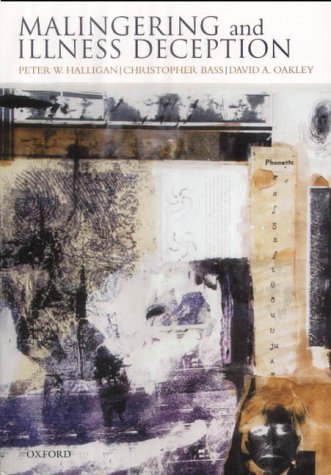
Despite a rich and turbulent history spanning several centuries, malingering continues to be a controversial and neglected clinical condition that has significant implications for medical, social, legal and insurance interests. Estimates of malingering - the wilful, intentional attempt to simulate or exaggerate illness in the pursuit of a consciously desired end - vary greatly, despite the fact that malingering is believed to contribute substantially to fraudulent health care and social welfare costs. There is little consensus about what would constitute a coherent assessment of malingering, and base rates have been difficult to establish. Malingering remains a difficult attribution to make not least since it falls outside the remit of the formal psychiatric classifications. Labelling a person as a malingerer however, has significant medico-legal, personal and economic ramifications for both subject and accuser. Viewed in this way, malingering is not so much illness behaviour in search of a disease, as the manifestation of a conflict between personal and social values. The aim of this book is to effect an integration of the different medical, forensic, neuropsychological, legal and social perspectives. The book provides an overview of progress in disparate fields relevant to the subject, including how recent social and neuroscience findings regarding volition, intentional states and theory of mind may have implications for informing detection, management and ultimately its explanation.